Hi Janet,
I wrote to you last fall with a question about my then-1-year-old and our issues with bath time. Your advice was great, and we got over that hurdle, but I’m hoping you can share your experience and insight with me in another area.
My daughter is now close to 2 and a half, and a daily vitamin has always been a part of our routine without any problems. For the past few months, she refuses to take the vitamin, and after a period of several days without her taking it, we gave it to her while holding her down and trying to get it into her mouth. It’s awful for everyone involved. We try giving choices about when and how she drinks it and offering her a “treat” if she drinks it on her own, but none of that works.
Recently, we took a break from the vitamin — I figured we were in a rut and she had such negative associations with it, plus I felt that a few weeks off wouldn’t hurt. We tried reintroducing it this week, and it’s the same scenario: complete refusal, pleas from her father and me to do it on her own, and a really awful time forcing it on her. She’s now on an antibiotic, and we’re in the same predicament. The antibiotic is necessary, so we (her father and I) really feel like we’re out of options.
It breaks my heart to have to do something so against her will every day — any advice on what to try?
Many thanks,
Lindsay
Hi Lindsay,
Here are my thoughts…
The vitamins and the antibiotics are different in that one is a “soft rule” — you’d like her to take them but it’s not vital (correct?) — and the other is a necessity. I would not force her to take the vitamin.
In both cases, our emotions, especially worries, frustration, fear, anger or panic, can only get in the way and make matters worse. Be careful not to plead. Pleading makes children feel uncomfortably powerful and creates guilt. Instead, project confidence and remember that you and your husband are the leaders.
With soft rules it helps to let go of our agenda, which is acutely perceived by our child and the reason bribes, treats and distractions don’t usually work, at least not for long. Children are much smarter and more aware than we give them credit for. So try backing off and giving her more autonomy. Sometimes it’s just about opening our minds a little to new things our child might be capable of doing. There are such a wide variety of fun, child-friendly multi-vitamins in all different colors and shapes. Could she go to the store with you and pick out her vitamins? Then you might ask her in a very relaxed manner each morning, “What color vitamin would you like today?” Hand her the one she chooses, and leave it at that. If you back off she will have “room” to decide to take her vitamin.
Do you give her desserts? If so, the only respectful and logical consequence you might consider would be to say in a calm, honest, matter-of-fact (never scolding) manner, “I won’t be able to give you dessert today if you can’t take your vitamin”. Since sweets weaken the body, that would make perfect sense to you and to her (although she’ll still complain about it).
The antibiotics fall into the “insist upon” category, and your issue presents an important idea for parents to understand. It’s a parenting scenario most of us have to work hard to feel comfortable with…a pill to swallow (as it were).
Parents were invented because we know better and can therefore guide and care for our children. Acting with our experienced adult judgment will mean doing things against our child’s will. This is especially true during the toddler years, because our children are deeply involved in the healthy and thrilling process of discovering their will for the very first time. They begin to realize that they have a “self” that is separate and different from ours, and they are figuring out all that means and how it works. So when you see situations like yours from the child’s perspective, allowing a child to have her way all the time is…well…letting her down, because to fully explore and understand her will she has to want something different from what you want.
So, rather than feel heartbroken, embrace a positive mindset. Project calm, complete conviction and say to yourself (and maybe even to your child): “I have an extremely special and wonderful child, so I must be the very best parent. That means gently forcing certain issues even though my child cries. It means being empathetic and supportive of my child’s upset feelings, but not feeling guilty or heartbroken, because I’m being an awesome, brave and loving mom.”
This mindset actually prevents us from reaching our “breaking point” and losing our temper, because we are coming from a place of strength, love and honesty. It’s when we try to force the issue from a tense, fearful place or use up our energy and patience on fruitless efforts like coaxing, distracting, pleading or otherwise dancing around the issue that puts us over the edge.
Give her choices about how and when to take her medicine if you can, but if she still refuses you’ll have to insist as gently as possible. Hold her close afterwards if she wants you to and tell her you’re sorry she had to do something she didn’t want to do. But don’t pity her. You’ve just given your daughter a precious gift and she knows it…the assurance that she matters so much that you’ll risk bearing the brunt of her feelings to kindly do what’s best for her.
Warmly,
Janet
(I share more about encouraging cooperation in No Bad Kids: Toddler Discipline Without Shame)
(Photo by rreihm on Flickr)






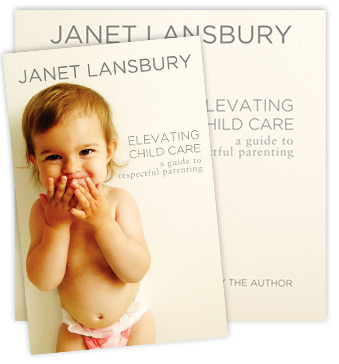

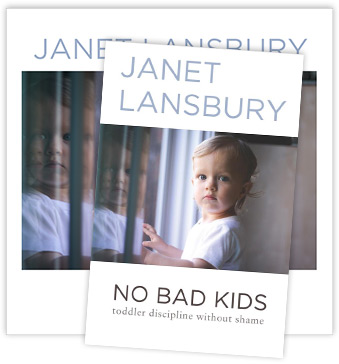
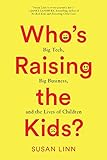


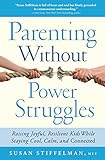
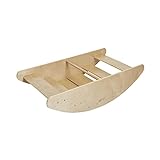

This was a GREAT one! I have a toddler and working with his strong will can be really challenging. It is really hard sometimes to be firm and set those strict boundaries (that are in their best interest), but I have seen the positive fruit of it, and it’s totally worth the struggle.
I see other parents around me not setting strong boundaries and even have big struggles around letting their kids cry at all – it breaks my heart because they do not understand that they are creating intense insecurity in their child by doing this.
Thank you for your blog, Janet.
Gina, you’re so welcome and thank you for sharing your positive fruit! Yes, it makes it easier when we realize the comfort we bring to our child by giving boundaries. It’s so important to look beyond the moment when we parent.
I loved this! Thank you so very much for affirming what we’ve BEEN doing for years this our kids. We have medical issues here and it’s NOT easy at all… not simply antibiotics or vitamins but tough stuff. With our older son it was a lot of medical stuff daily. With our younger son, it’s testing, and doctors appointments, not easy on a toddler who has some delays and can’t tell us “STOP!” with words so boy does he does he tell us in other ways, yet we can’t stop things sometimes… we have to let the doctors do the awful test and it’s hard to explain to him sometimes. We just have to be there for him and let him know we hear him, we agree with him that this does hurt, and we will help him through it. We do everything we can to limit the tests, procedures, etc.. and have found there are many ways to combine things and just not do some at all! (Some are really not necessary, or can be done at home in a much more comfortable setting.) The other thing we’ve found really helpful is having lots of doctor type play items available to him. He has gravitated there on his own and I find him with a stethoscope more often than not! We also give him lots of control over things whenever we can and he is very proud of what we can do. Thank you for covering this topic!
“…to fully explore and understand her will she has to want something different from what you want.” Very nice. Worthy of framing.
Janet this is such a terrific article. And I LOVE the photo. That is the prefect face of a two-year-old. I wouldn’t want to be on the other side of an issue from that person.
Rick, you make me laugh! Thanks so much for your kind words of support.
I was going to say that very same thing Rick did! 🙂
This all gave me such an “Ah Ha” parent moment.
“…to fully explore and understand her will she has to want something different from what you want.”
I get it now… my 2 year old son is not just being defiant 🙂 he is doing his job developmentally (even if it makes mommy a bit crazy lol)
Thanks so much!!! keep doing what you do too. Parents need support and guideance as we learn to be parents! Humm… not unlike the support and guideance our children need to become adults 🙂
…and Lindsay, a perfect story about how parental confusion can actually cause increased willfulness.
Hi Janet – Great post and a link will be in the August 2nd issue of Parenting News, our free weekly e-zine for parents and teachers. The mindset that we choose is important when our children become teens, too. My daughter just turned fourteen and I am learning more about detaching from power struggles than I did when she was three! Please see our recent blog post at http://wholeheartedparenting.blogspot.com/2011/07/being-detached-when-teen-makes-demands.html. Thanks again for your always thought-provoking and loving posts!
Thank you so much, again, Janet, for your thoughtful response. It’s exactly what I need, exactly when I need to hear it. I’m due with our second daughter within a few weeks, and my patience/creativity/mental energy is at an all-time low. I must remind myself every day that my own sense of confidence or weakness will determine how my daughter reacts to me. Thanks again!
Lindsay, you are most welcome. Such exciting and wonderful news about your imminent addition to the family! Please keep in touch, take care and be good to yourself!
I have gone through the same thing with my 2 year old. She hates taking medicine. We gave her the choice of taking it in milkshake form (a small amount of keifer in a cup with a straw). At the end we encouraged her to make the slurpy noise with the straw. Due to the novelty and because the “milkshake” was a treat she went for it. Just an idea.
Yes, I was wondering why it wasn’t a choice to have the vitamins or antibiotics a little smooshed in water or something? I mean i’m a BAD pill taker. And this sounds like my worst nightmare. I mean, hey, I have a 14 week old baby, so I’m not judging… i’m just really curious. 🙂
Yes, I like those ideas, too!
Great article. Like Maggie, I have a teenage daughter and avoiding power struggles can take a lot of work or at least awareness. The similarities between toddler and teen can be striking.
Along with the responsibility parents have for their children comes a natural authority. Authority seems to have gotten a bad rap, but coming from a place of calm confidence is empowering and creates the security in which our children thrive.
Articles like this give me a nice reminder of what I’m working toward as a parent. Thanks.
Thank you, Deborah. I wholeheartedly agree about the importance of providing authority for our kids. If not us, then who? When all the power and responsibility gets dumped in our children’s laps, it overwhelms and even cripples them.
I would treat the child as an adult who has no clue about vitamins.
Talk and explain as you would to an adult about something they do not know. Respect and start with the basic. often they will understand. Treat a child like a child and they will remain a child.
Hi Janet,
I’d like to add a couple of thoughts. My first would be to lead with empathy. To make sure your child knows how much you understand that they don’t like it. Perhaps you may learn more about what they don’t like. the taste? the smell? the feel? the time it is taken? the pressure?
it is very normal for kids to like something and then no longer like it. my daughter happily ate eggs for five years and then she was done. who knows for how long…but we find other ways to work protein into her diet.
also re: medication. my daughter loves purple and red syrupy stuff. but there was one she had to take that she hated. we found out it came in a chewable form and she liked it. i know you already said that option, of looking for other ways to get the nutrition or medicine inside them but often with antibiotics there are other options as well.
while there are things that we as parents must take charge of, and i agree that being calm and confident is important, i think those things are much fewer and far between than most. take teeth brushing for instance. soooo many people struggle in a similar way with that. and every night it is a battle with tears and the parent knows they must do this as it is so important.
parents often explain why it is so important over and over but without hearing how it feels and then again, leading with empathy. “you really don’t like having your teeth brushed…” is that right? does it hurt? feel yucky? ” i always think rethinking and developing solutions is great and so important but to first lead with empathy so everyone feels heard and understood before new solutions are sought. and there are soooo many other ways to work on teeth brushing without holding your child down and forcing it, as i’m sure you know! i think this is so important because they know you really understand them. they feel heard and that their protests are important. that doesn’t mean you cave, but then they feel like they don’t have to fight even harder next time, because mom and dad already understand. does that make sense?
Jennifer, thanks so much for your comments. Yes, it definitely makes sense to acknowledge feelings and empathize with our children’s discomfort, even if their reactions seem over-the-top. I’m a big believer in that. But when you say “lead with empathy”, I’m assuming you don’t mean saying, “Now we have to brush your teeth and I know how much you hate that”, etc. If we lead children in that manner, we don’t leave breathing room for them to approach the situation with a fresh attitude. If we set them up for misery, our children’s only choice is to remain miserable…to save face.
Isn’t saying “I won’t be able to give you dessert today if you don’t take your vitamin” essentially a punishment? It’s taking away a privilege as a result of the child not doing something you want her to do.
If the parent is committed to the need for vitamins for health reasons, I don’t see that as a punishment, unless the parent frames it that way. I think it’s very reasonable.
Such a great post…we all have these struggles with children, Understanding with empathy is good advice…also being able to pick which things that we as parents need to insist upon and what we can negotiate is valuable for parents to learn as well.
Definitely agree, Lorette. Thanks!
We had trouble getting our daughter to take meds as well. The problem was us putting the dropper in her mouth. But we found that she really liked to do it herself! So if she was taking the dropper and squirting it into her own mouth, she was happy. There was no struggle. Sure, it is a little messier- but she is independent and it works. Maybe you could try that with your antibiotics?
Yes, it’s simple adjustments like that, Erin, that can make all the difference.
I totally agree with the vast majority of this, Janet- but I must take issue with the following.
“Do you give her desserts? If so, the only respectful and logical consequence you might consider would be to say in a calm, honest, matter-of-fact (never scolding) manner, “I won’t be able to give you dessert today if you can’t take your vitamin”. Since sweets weaken the body, that would make perfect sense to you and to her (although she’ll still complain about it).”
I have a real bugbear about giving food an emotional or punitive dimension in the mind of a child. Eating starts out as a response to a vital body signal, hunger. When we give food an emotional dimension by using it as a reward or punishment in response to our child’s behaviour, we start to confuse children about their natural body signals and we encourage them to discount those signals and eat in response to their emotions upon acceptance or rejection. I truly believe that this is the beginning of eating disorders, from obesity to anorexia/bulimia.
I honestly don’t believe that there is any situation where food should be used as a reward or punishment. As for sweets weakening the body, ANY food given to excess will have a detrimental effect. Without an adequate amount of sugar in our diet we would die. It’s a matter of balance; if we stick to the food pyramid and give very small quantities of fats and sugary foods alongside appropriate portions of low GI carbs, dairy, proteins and roughage WITHOUT COMMENT, we can establish a healthy norm and defuse what can become a terribly dangerous situation for our kids in later life.
FWIW, my personal opinion about the vitamin pill is that it’s one of those battles that really isn’t worth fighting. And to muddy the waters of good nutritional habits by giving sweet food emotional value will, in the long run, have exactly the opposite effect on health from that which is intended by giving the pill in the first place.
I realise this is a bit of a diversion from the extremely valid point you were making- but hey, I’m trying to change the world here- one attitude at a time. ;D
What worked for my son who had to take daily medication during his childhood was to simply without emotion say to him – do you want to do this the easy way or the hard way? the easy way was for him to take the meds himself or the hard way was for me to hold him down and force them down his throat. please keep in mind before you judge me that these meds were to keep him and our family safe as he had violent mood swings and was a danger to himself and his slightly older brother, so the meds were in no way optional. this gave him both a choice and control over the situation and worked for our family.
I strongly agree with what Aunt Annie’s Childcare said about the use of food.No matter how you spin this it really sounds like punishment ( or natural consequences or whatever ) to me!
However, Aunt Annie’s Childcare, i dont agree that sweets should be a part of our diet! And the food piramid is a bit screwed up ( you should do some research on modern grains: especially wheat ; and on nowadays animal products , it’s scary but these things should be eliminated from our diets no matter how you spin it! )
Some things should completely be avoided! Like alcohol for ex. …
Here is an interesting article on sugar: http://nancyappleton.com/141-reasons-sugar-ruins-your-health/
so I’d conclude: stick to fruit and the occasional spoon of natural honey
I am however a bit off topic with this and I apologise.
Oh, Janet!! You make it all seem so possible for me. I am truly indebted to you. I have a strong-willed (no idea where he gets it 😉 and a five month old. I relish each post of yours, as it prepares me for the next days battles. And you know what? The battles are spacing themselves out now, as I internalize your lessons and wisdom. This post strikes a chord with me: just let go of some of the negotiables. I’m sure my attitude about them lights the matchstick for many other things. And the non-negotiables? Project my most bad-ass-with-it-mama self. I’m getting there, slowly, and so look forward to being reaffirmed every evening with your voice & knowledge.
Aww, thank you, Linsey! I love the way you’ve expressed this. 🙂 Yes, “just let go of some of the negotiables” is perfect! I’m so glad you’re seeing progress and totally believe in you to continue doing so. This parenting thing is an ongoing process for all of us.
“Insist as gently as possible” what does this look like? Because I just “gently insisted” with no results whatsoever. You just… what? Lock yourselves in the bathroom and wait until he acquiesces? For…hours? Or what? If any medicine gets in his mouth he gags and spits it everywhere.
We acknowledged feelings. We explained, we gave options… We’ve never had this sort of problem before. This style of parenting came very naturally and he’s always been very easy going, and has always taken his meds and stuff without issue. I’m at a total loss here. I’m probably more frustrated because I’m so unused to dealing with this level of difficulty.
We can swap the liquid out for tablets in this case – but what if we couldn’t?!
He has tonsillitis and scarlet fever and needs penicillin!